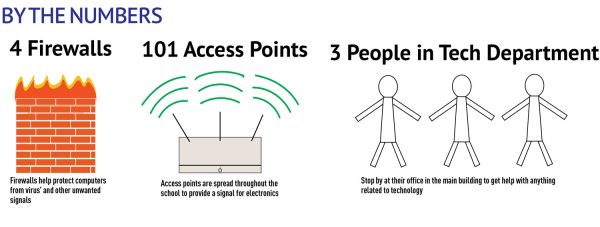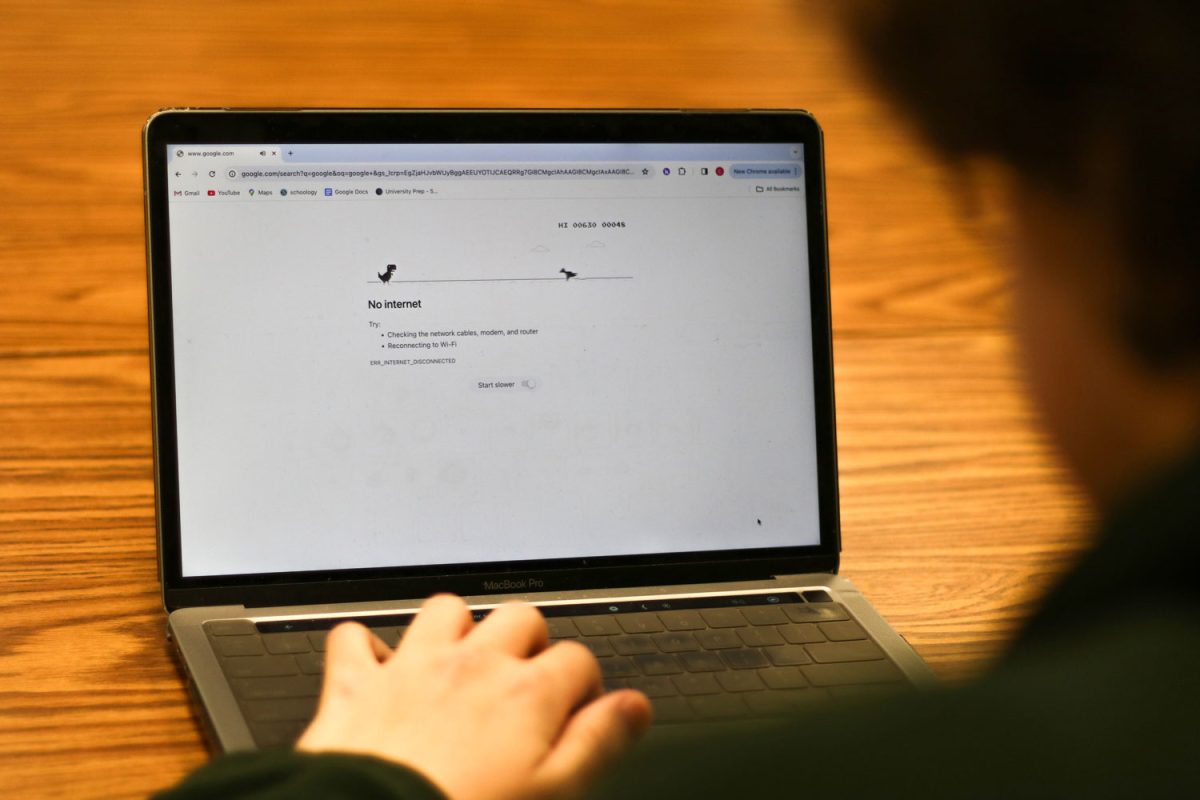With an abundance of TV screens and other electronics in the school, UPrep continues to connect online elements with its curriculum. However, this system can crash when the school’s technological lifeline, Wi-Fi, ceases to work.
“It looks like not being able to use the projector, not being able to look at my own plans on my computer, and not allowing kids to do in-class work if they need to,” English teacher Mawee Aguon said.
According to Aguon, her CL066 classroom, located on the bottom floor of the classroom building, was without Wi-Fi for two weeks during the beginning of first semester. The lack of connection hindered the success of the course.
“There was one essay the kids had to do last semester where they needed to be on the internet and find sources, but they just couldn’t,” Aguon said. “They had to go upstairs, try to find Wi-Fi and then come back down. It’s just a ripple effect of how it affects the student’s mentality around writing a paper.”

According to Amy Spivey, director of information technology, the issue was resolved on Sept. 26. While the technology department improved the problem, Aguon said she still needs to improvise when the connection gets spotty.
“I tend to not use computers that much in my class. But when you need to use it and there’s no option, it tends to be a lot of me making stuff up on the spot,” Aguon said. “At one point the due date was pushed back for one of the essays because there was just no way that they could submit anything. So the teachers have to be equally as flexible as the students.”
Sophomore Gavin Angeloff has also experienced connection outages during his French class in A023.
“Most of our lessons are either using the whiteboard or they’re cut short because we are unable to display content,” Angeloff said. “It kind of deteriorates the experience.”
To get work done online, he had to connect to a hot spot on his phone.
“It makes me feel a little sad because I’ve been taking French since sixth grade and I love it, but it’s just disappointing that I can’t practice to my fullest,” Angeloff said.
The tech department had attempted multiple times but failed to fix the problem, according to Angeloff. Since the interview, the issue has been solved. According to Spivey, the department had to redo the switch configuration so the access points could pick up the signal.
However, Spivey believes that a majority of the connectivity issues are fixable if the department is alerted about it.
“If you don’t get a Wi-Fi signal, explicitly tell us,” Spivey said. “We are not psychic, and so if you’re not getting a signal somewhere and no one tells us, we don’t have a shot at fixing it.”
With 101 Wi-Fi access points, the tech office can almost always solve the problems according to Spivey.
“It is centrally managed, so we can get to the access points and see what’s going on pretty quickly wherever we are,” Spivey said.
She also stresses the importance of students and teachers emailing her at [email protected] if they have any issues.
“Just tell us. I am not looking for a particular format or the most polite email in the world,” Spivey said. “We may have a few questions or we may want to see your device, but we will go check it out pretty quickly.”



